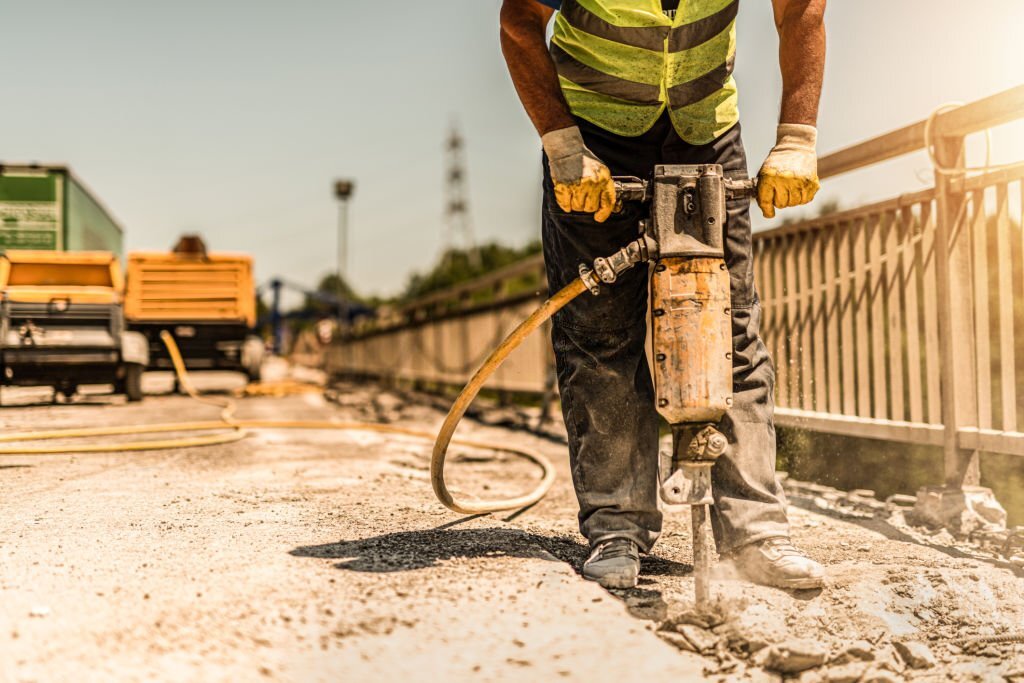
Hydraulic breakers, also known as hydraulic hammers, are powerful tools used in road construction projects to enhance efficiency and productivity. These specialized attachments are designed to deliver high-impact force, making them invaluable for various construction activities. In this article, we delve into the application of hydraulic breakers in road construction projects. From their role in demolition and rock excavation to their contribution to pavement maintenance and repair, we explore how hydraulic breakers streamline construction activities and ensure the successful execution of road infrastructure projects.
I. Demolition and Rock Excavation :
Hydraulic breakers are extensively used in road construction projects for demolition and rock excavation tasks. Consider the following applications:
- Concrete and Asphalt Removal: Hydraulic breakers are used to break up and remove old concrete and asphalt surfaces during road rehabilitation and repair projects. They efficiently demolish the existing pavement, allowing for the replacement or resurfacing of the road.
- Rock Breaking and Quarrying: In road construction projects that involve rock excavation, hydraulic breakers are utilized to break up large rocks into manageable sizes. This facilitates the excavation process and enables the removal of rocks to create a stable foundation for road construction.
- Utility Line Installation: Hydraulic breakers aid in the installation of utility lines by breaking through hard or rocky soil. They create openings or trenches for the installation of water, gas, or electrical lines, ensuring efficient utility infrastructure development.
II. Pavement Maintenance and Repair :
Hydraulic breakers play a significant role in pavement maintenance and repair, helping to ensure smooth and durable road surfaces. Consider the following applications:
- Pavement Patching: Hydraulic breakers are used in pavement maintenance to remove damaged or deteriorated sections of the road surface. They efficiently break up the affected area, allowing for the proper patching and repair of the pavement to restore its integrity.
- Crack and Joint Repair: Hydraulic breakers are employed to widen and clean cracks or joints in pavement surfaces. By removing debris and creating a clean surface, they facilitate the application of sealants or fillers, preventing further deterioration and extending the life of the road.
- Surface Preparation: Hydraulic breakers assist in surface preparation for road construction or resurfacing projects. They can be used to roughen the existing surface, promoting better adhesion of new asphalt or other surface materials.
III. Benefits and Advantages :
Hydraulic breakers offer several benefits and advantages in road construction projects, contributing to improved efficiency and productivity. Consider the following:
- Power and Productivity: Hydraulic breakers deliver high-impact force, allowing for efficient and rapid demolition or excavation. Their power and productivity enable construction teams to complete tasks in a shorter time frame, saving both time and labor costs.
- Versatility: Hydraulic breakers come in various sizes and attachments, making them adaptable to different road construction requirements. They can be mounted on a range of machinery, including excavators, skid steer loaders, or backhoes, providing versatility in accessing and working in different areas of the construction site.
- Precision and Control: Hydraulic breakers offer precise control, allowing operators to direct the force exactly where needed. This enables accurate and controlled demolition or excavation, minimizing the risk of damage to surrounding structures or utilities.
- Reduced Manual Labor: Hydraulic breakers significantly reduce the need for manual labor in tasks such as pavement demolition or rock excavation. This not only enhances safety but also boosts overall productivity by freeing up labor resources for other construction activities.
Conclusion :
Hydraulic breakers play a vital role in road construction projects, facilitating efficient demolition, rock excavation, and pavement maintenance. Whether utilized for breaking up concrete and asphalt, excavating rocks, or carrying out pavement repairs, hydraulic breakers contribute to enhanced efficiency, productivity, and precision in construction activities. Their power, versatility, and control provide construction teams with the necessary tools to complete tasks quickly and effectively. By utilizing hydraulic breakers, road construction projects can streamline demolition, excavation, and maintenance processes, ultimately ensuring the successful execution of road infrastructure projects.

